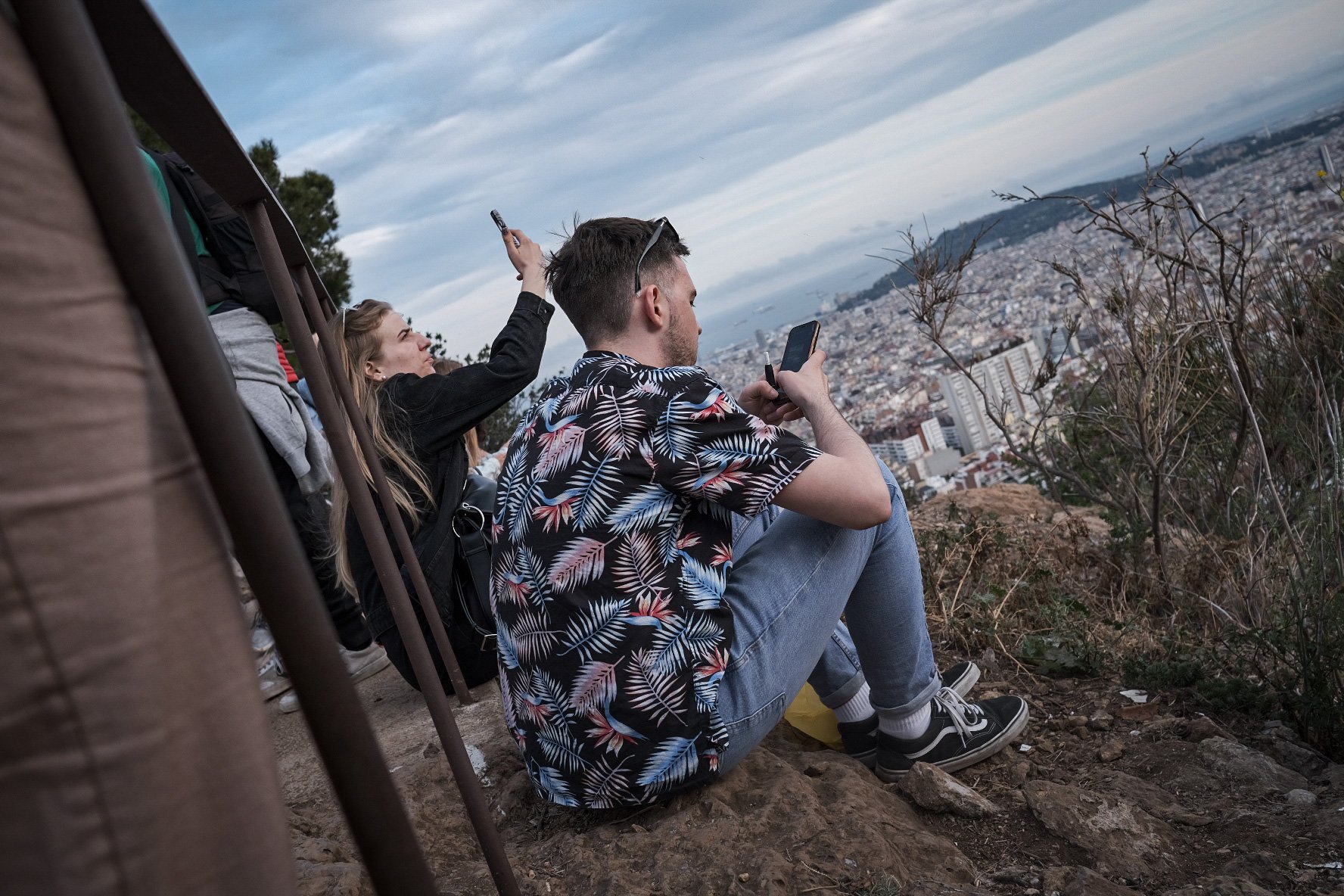The problems of large gatherings, noise, drinking in the street and incivic behaviour at the top of Barcelona's Turó de la Rovira have not been stopped by the nightly closure of the hilltop location where the anti-aircraft gun emplacements used to be, since the crowds have continued to flock to the area throughout the summer, and in fact, due to the evening lock-up of the so-called "Bunkers" site, parties have become spread across the surrounding area, while some also continue to jump the fence. Nor has there been any redress to the problems in public transport caused by the large influx of people, some of them tourists who arrive during the day although with a tendency to visit outside opening hours. And on top of all this, there have been recent cases of cars entering the area restricted to residents and prolonging the party until the small hours of the morning.
This is what the Neighborhood Council of Turó de la Rovira reported this Tuesday. After days of reporting that the area is still full of people who gain access by jumping the fence, the group has also published a video showing how a couple of cars and their occupants blocked one of the surrounding streets, Carrer Marià Labèrnia, an area where, in theory, only residents' vehicles are allowed access. In fact, the residents' platform itself reports that the bollard that should prevent the entry of non-resident vehicles is broken: "Two cars blocking Carrer Labèrnia, a mobile booze-up which more and more tourists joined and which lasted beyond two in the morning", the neighbourhood group points out in a social media post, adding that "the bollard that should prevent it has been broken for three months, and the Guardia Urbana did not show up at all during the night". The capitalized last word of the message: "SHAME."
Dos cotxes encastats al carrer Labèrnia. Botellot móvil al que s'hi van anar afegint més turistes i que va durar més enllà de les 2 AM. La pilona que ho impediria duu 3 mesos espallada, i la @GUBBarcelona no va fer acte de presència en tota la nit.
— Consell Veïnal del Turó de la Rovira (@ConsellVeinalTR) August 29, 2023
VERGONYA @RabellLluis pic.twitter.com/x9t9Edmkfo
In fact, the problem of the summit of Turó de la Rovira is one of the pending tasks of the new councillor responsible for the Horta-Guinardó district, Lluís Rabell, who last June, in reaction to an attack on a resident by a badly-behaving visitor who sought entry into the closed-off area, asserted that the new Socialist municipal government would not allow the situation to get out of control. Rabell also saw with good eyes the strategy initiated by his predecessor, Rosa Alarcón - who this Tuesday resigned from her position for health reasons - and considered that the new night-time closure system was working "reasonably well", since the "massive invasions that occurred previously", with peaks of up to 2,000 people, had stopped.

